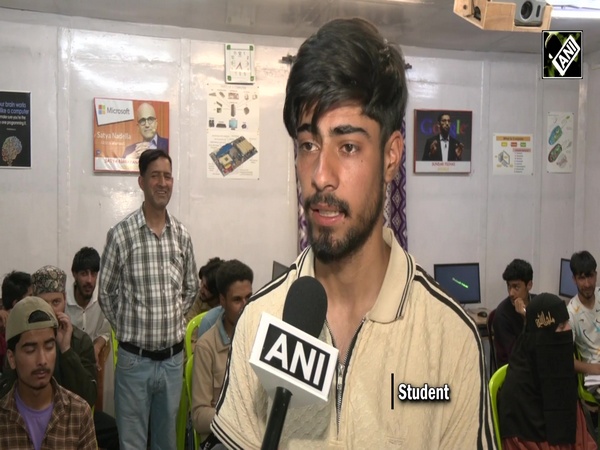Global leaders rally for over USD 15 billion in impact investment to aid vulnerable communities
Jan 17, 2024

Davos [Switzerland], January 17 : The World Economic Forum's Humanitarian and Resilience Investing (HRI) Initiative has unveiled groundbreaking progress in the drive to mobilize USD 10 billion, enabling 1,000 businesses in frontier markets to scale operations by 2030.
Over 40 partners associated with the initiative announced more than 50 commitments aimed at boosting impact investment in these markets, potentially unlocking over USD 15 billion in commercial and catalytic capital.
This initiative's achievements align with a Call to Action launched in September 2023, addressing the systemic challenges faced by 2 billion people globally living in poverty and insecurity.
The overarching goal is to enhance the resilience of at-risk and crisis-hit communities, acknowledging the urgent need for impactful investment in frontier markets.
Mirek Dusek, Managing Director at the World Economic Forum, commended the remarkable range of commitments from diverse stakeholder groups, emphasizing the opportunity to build momentum and demonstrate the impact and financial potential for investment at scale in frontier markets.
He said, "The range of commitments from various stakeholder groups in response to the Call to Action is remarkable. We have the opportunity to build momentum across sectors and demonstrate the impact and financial potential for investment at scale in frontier markets."
Governments of Kenya and the United States, along with organizations such as the African Development Bank (AfDB), Bamboo Capital Partners, CrossBoundary, IKEA Foundation, ODI, and the World Bank Group, have joined forces.
They aim to support favourable market conditions to scale businesses in northern Kenya. The HRI Initiative, in collaboration with Call to Action partners, plans to implement this approach in nine additional frontier markets by 2030.
The HRI Initiative and the Forum's Giving to Amplify Earth Action (GAEA) announced a new multistakeholder partnership.
This collaboration will convene private-public-philanthropic partnerships to support and scale projects addressing the impacts of the global climate and nature crisis on vulnerable communities.
Supporting organizations include Acumen, Bamboo Capital Partners, ICRC, IRC, PIDG, UNHCR, WFP, and Vital Capital Environment.
The HRI Initiative is partnering with AVCA, Collaborative for Frontier Finance (CFF), elea Foundation for Ethics in Globalization, GIIN, GPCA, GSG, and KOIS to facilitate collaboration along the continuum of impact investments.
This initiative, with a global reach of over 1,000 capital providers, aims to expand frontier finance and develop financing and partnership models adapted to the unique conditions of these markets.
Peter Maurer, Co-Chair of the HRI Initiative, highlighted that sustainable change and measurable impact require collective and concerted action from key private and public stakeholders.
Market-driven solutions, he added, can strengthen local economies, address systemic challenges in communities living in extreme poverty, and reduce aid dependency.
The Swiss Agency for Development and Cooperation (SDC) and Roots of Impact have initiated an effort to enhance the impact-linked finance (ILF) market.
This aims to standardize and regulate operations, channelling private investments to previously unreached areas and outcomes.
The goal is for more organizations to join this collaborative effort, making ILF a standard practice and directing private investments to areas and outcomes that might otherwise have been overlooked.
The African Development Bank (AfDB) and Interpeace have called upon partners to create standards, develop market intelligence, facilitate partnerships, share knowledge, and jointly create a pipeline of peace-positive sovereign and non-sovereign operations.
This initiative aims to de-risk investments in emerging markets and fragile settings for both investors and communities.
The HRI Initiative's efforts and partnerships exemplify a global commitment to addressing humanitarian and resilience challenges, fostering sustainable development, and achieving positive impacts on vulnerable communities around the world.
The initiative calls on other organizations to join these new impact-linked finance and peace-positive investment initiatives.




















